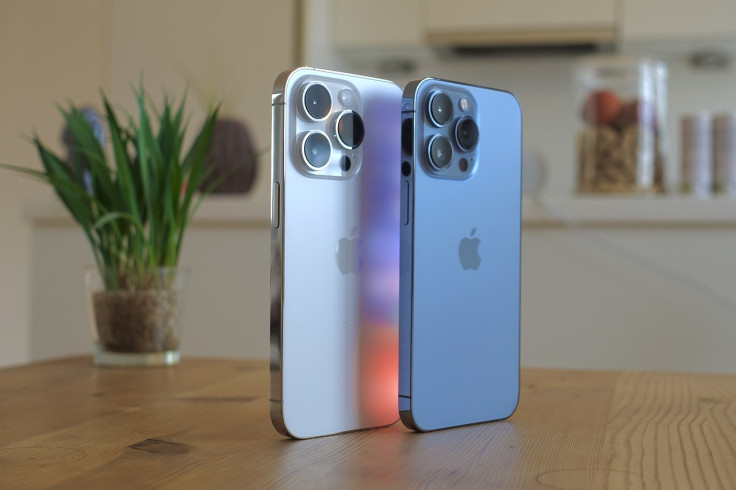iPhone 14 gets the lowest 5-star ratings, will the iPhone 15 be any better?
Unlike its predecessor, the iPhone 14 has failed to gain popularity among avid Apple fans.

A new report has shed light on what iPhone 14 users think about Apple's much-hyped smartphone. To recap, Apple unveiled the iPhone 14 series back in September 2022. However, it looks like the iPhone 14 has failed to impress avid Apple fans.
In fact, a new report suggests the smartphone has received one of the lowest 5-star ratings ever. This is the most significant drop in a decade. This shred of vital information has been revealed in a new study from PerfectRec.
“…PerfectRec which organized data from over 600,000 user-generated Google reviews for iPhone 14 and the other iPhone models. While the data likely includes some erroneous reviews, with a sample size this big, it likely still gives a good picture of iPhone user sentiment.”
— PerfectRec (@perfect_rec) May 8, 2023
The website did a statistical analysis of over 669,000 user-generated reviews of iPhones. As part of the study, PerfectRec scrutinised 13 years of user-generated iPhone reviews featuring the iPhone 4 up to last year's iPhone 14. To those unaware, the iPhone 4 made its debut back in 2010.
The best, worst iPhones of all time
It is also worth noting that the ratings are for the standard model of these iPhones. The folks at PerfectRec showed a continuous increase in 5-star ratings in the form of a graph. Interestingly, the study shows that the iPhone 5 saw a slight dip in popularity.
However, the ratings have only increased starting from the iPhone 6 until the iPhone 13. While the iPhone 13 gained an impressive 80 per cent 5-star rating, the current generation iPhone 14 dropped to 72 per cent. Aside from the standard iPhone 14 model, ratings of the Pro models also saw a dip.
For the first time in a decade, Apple's latest iPhone had worse user reviews than the previous generation. $appl https://t.co/Tm94v5xkl1 pic.twitter.com/WI1CJ5G3ye
— PerfectRec (@perfect_rec) May 5, 2023
The iPhone 13 Pro had a notable 5-star rating of 84 per cent. The iPhone 14 Pro, on the other hand, managed to get just 76 per cent. Likewise, the iPhone 13 Pro Max had 86 per cent of 5-star ratings, while the iPhone 14 Pro Max got only 80 per cent. However, the iPhone 14 Pro and 14 Pro Max outperformed their respective predecessors in AnTuTu benchmark scores.
PerfectRec attributes the steady increase in 5-star ratings for iPhones to the fact that Apple only improves iPhones with each generation. Aside from this, the site suggests consumers have been giving favourable reviews for a while now. According to PerfectRec, the iPhone 14 saw a dip in rating because Apple did not offer any major changes in the hardware, design, and features.
To make things worse, the flagship model packed an old A15 Bionic chip under the hood. Also, it did not support a high refresh rate. As if that wasn't enough, Apple limited Dynamic Island to the iPhone 14 Pro and iPhone 14 Pro Max. As expected, the iPhone 14 Pro series scored higher 5-star ratings than the non-Pro models.
Will the base iPhone 15 outperform iPhone 14, iPhone 14 Plus?
It will be interesting to see whether the upcoming iPhone 15 will perform better than the existing 2022 iPhone lineup as far as 5-star ratings are concerned. If rumours making the rounds online are anything to go by, the iPhone 15 series will boast a myriad of awe-inspiring features, coupled with sufficiently good specifications. However, it is unclear whether the base iPhone 15 models will get significant improvements.
Everything we know about the upcoming iPhone 15 series up until now!
— Apple Hub (@theapplehub) May 10, 2023
Are you planning to upgrade? pic.twitter.com/gGdeLuw3WU
According to an earlier report, Apple is planning to equip the iPhone 15 Pro and the iPhone 15 Ultra with the power-packed A17 Bionic chip. A Phone Arena report claims it will be the first TSMC-produced chip that adopts the company's 3nm process node. So, it is safe to say that the new chip will deliver improved performance and consume less power.
In other words, there will be increased demand for the iPhone 15 Pro and iPhone 15 Pro Max. This is also a major sign that the base iPhone 15 models could see a dip in 5-star ratings. However, this is mere speculation and Apple might surprise us by introducing new features and better hardware on the standard model of its next-gen iPhone.
iPhone 15 Pro design - new Action button (replacing Mute Switch), larger camera bump and USB-C port
— Apple Hub (@theapplehub) May 4, 2023
Are you planning to upgrade?
Renders: @wilson_boi_101 pic.twitter.com/asVbWc9fqV
The word on the street is that the iPhone 15 Pro series will come with a new Sony camera sensor and a periscope camera. Moreover, they are expected to feature solid-state volume and power buttons. Past leaks also imply that the Pro models will undergo a radical design overhaul. Regrettably, the iPhone 15 and iPhone 15 Plus could pack the older A16 Bionic chipset.
© Copyright IBTimes 2025. All rights reserved.






















